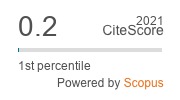Human and nature: the concept of nature and its portrayal in tsvetan rakovski ‘s “ethiopian fairy tale”
DOI:
https://doi.org/10.17762/msea.v71i4.485Abstract
The world of nature resembles multiple things in our life. The Ethiopian writers replicate their ideas in the fields of power, fantasy and nature. Fables originated in Africa, where they were created by a variety of tribes from all over the continent. The stories were passed down orally from generation to generation rather than being written down. African fables were given not just to teach morals, but also to educate, entertain, explain animal behaviour, and teach tribe customs. People convey their stories, history, lessons, hopes, and anxieties by speaking or singing in civilizations where there is little or no written tradition. The tradition existed in Africa, but there was no written language. The study has taken the Ethiopian Fairy tale, which is written by Tsvetan Rakyovski. This research ascertains the concept of nature to find out the hidden treasure in the world through the work of art. Further, the investigation deployed some natural elements and concepts like Blue Sapphire, Dark Skinned Slave, Emotional Intelligence, Wealth, Mother Nature, Umbilical Cord, Nature, Bhagavan, & Coffee to reveal the connection between human beings and nature.




